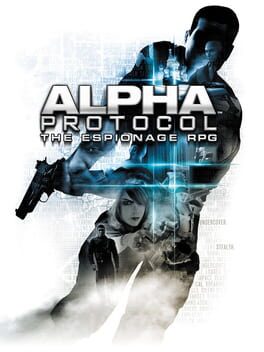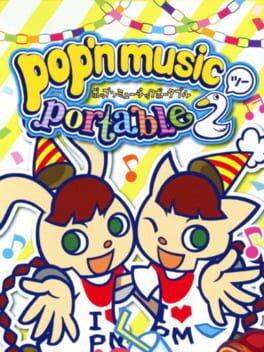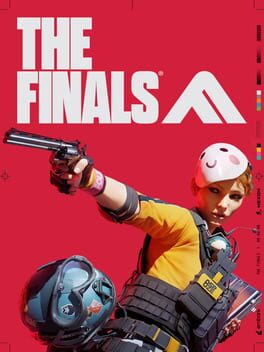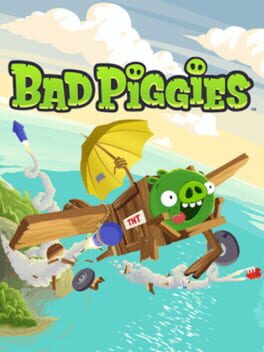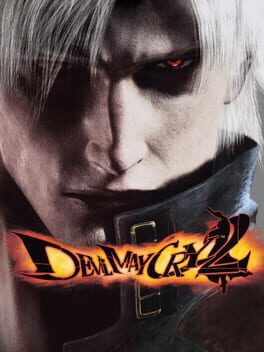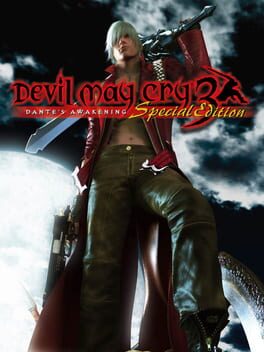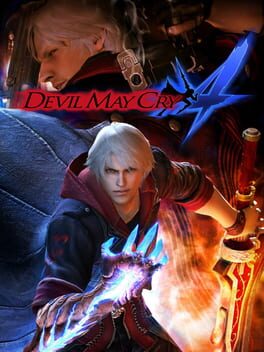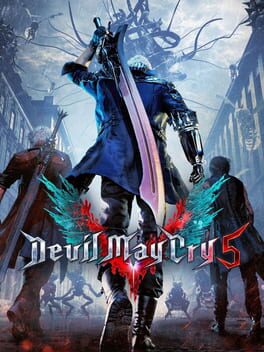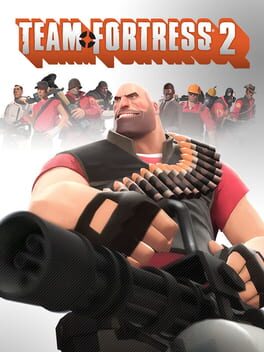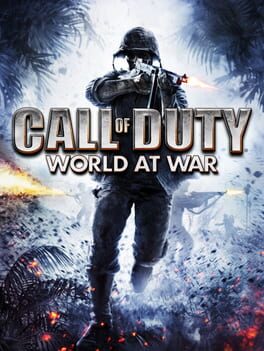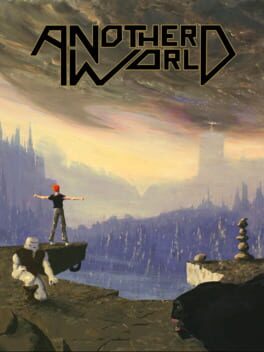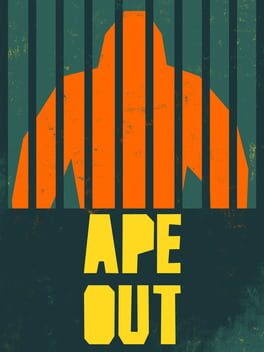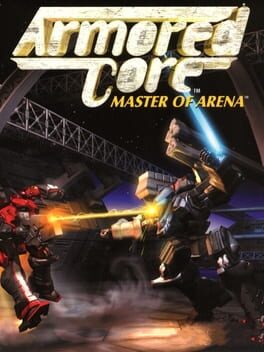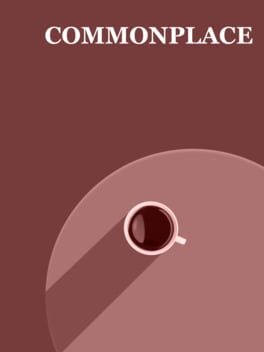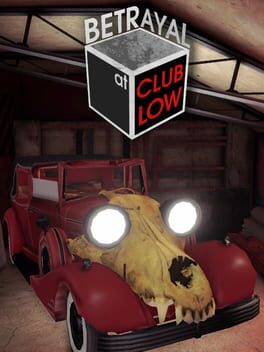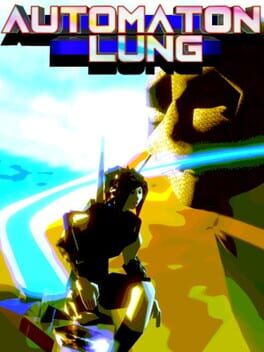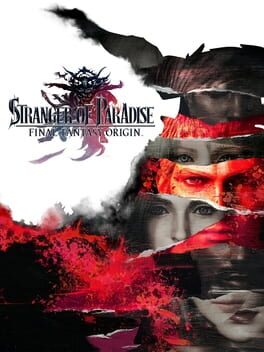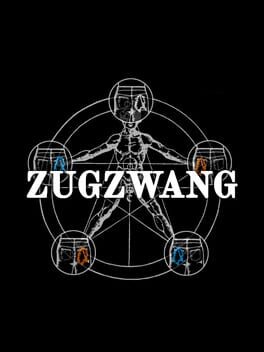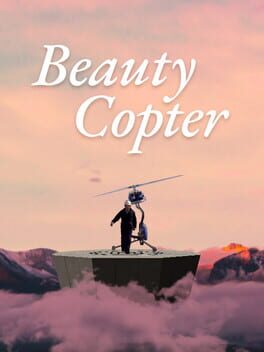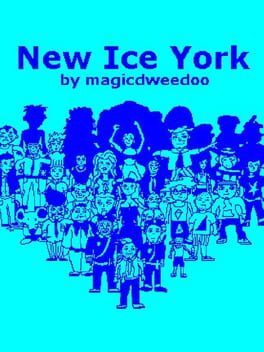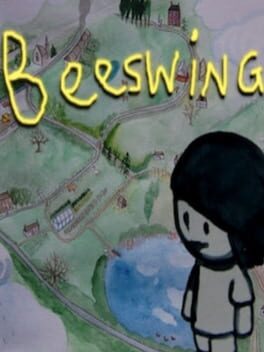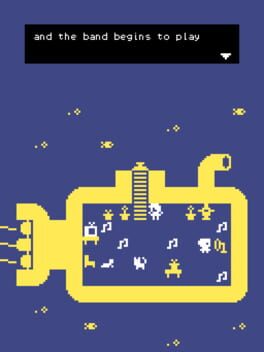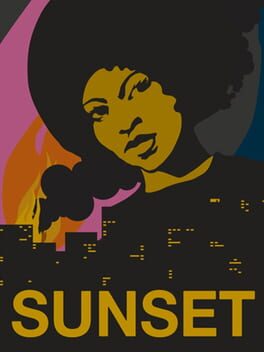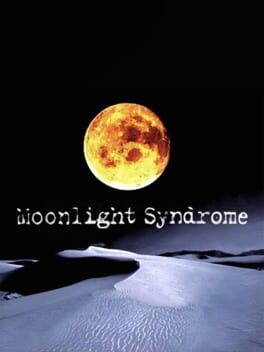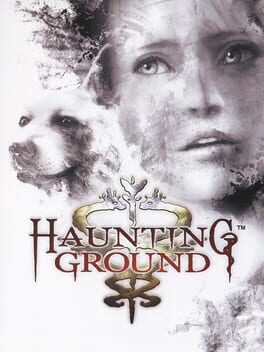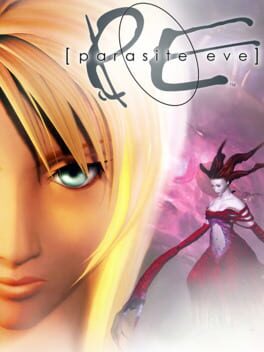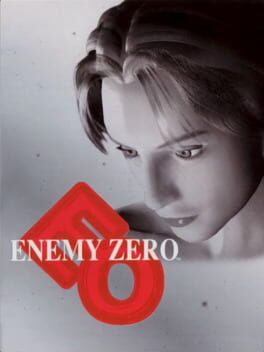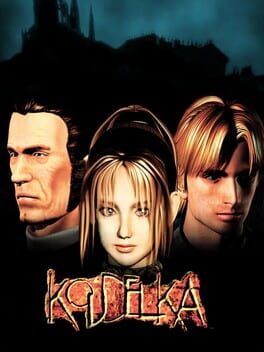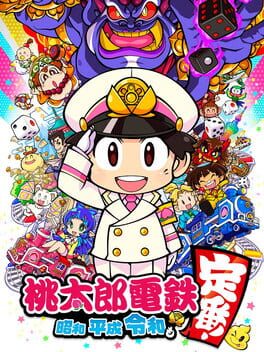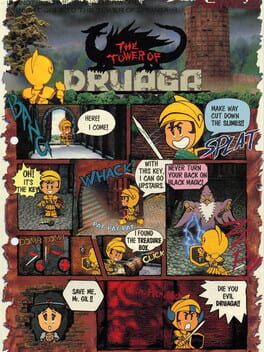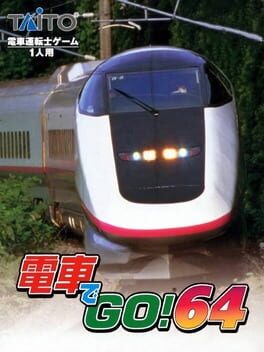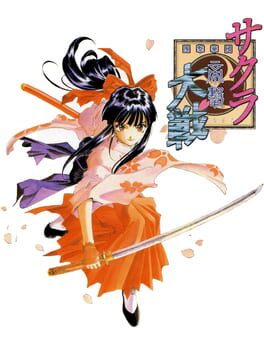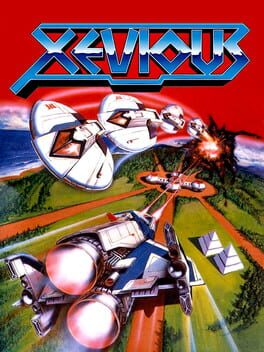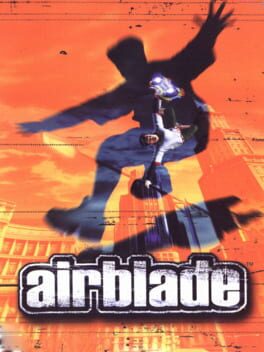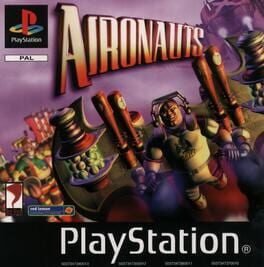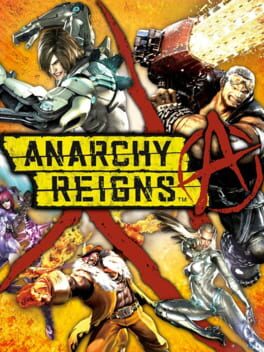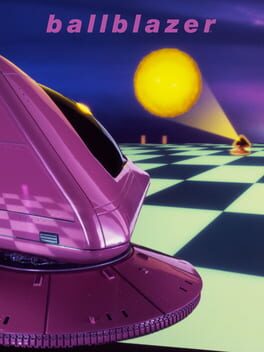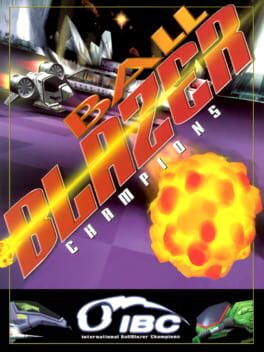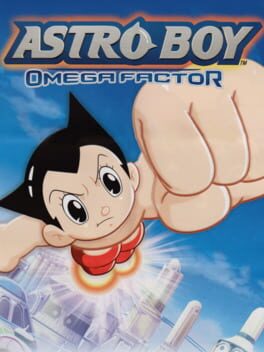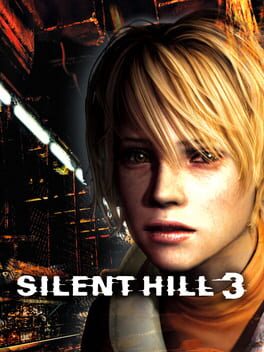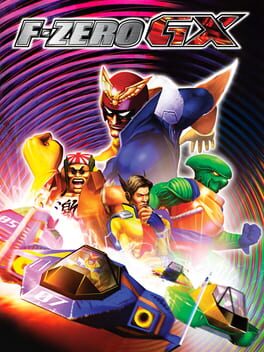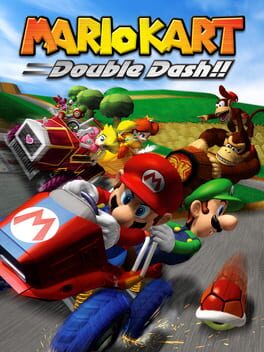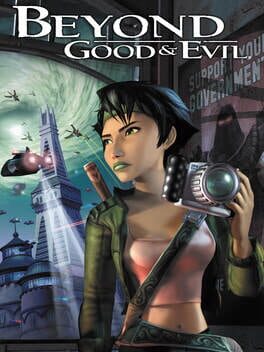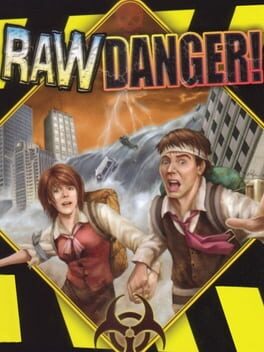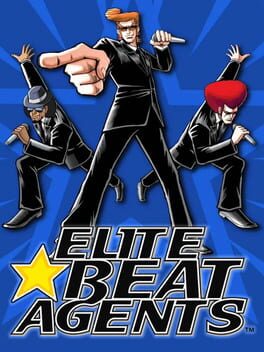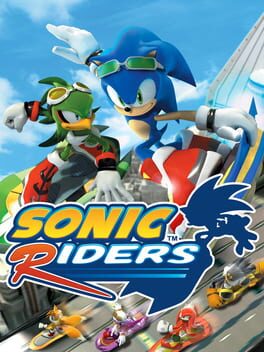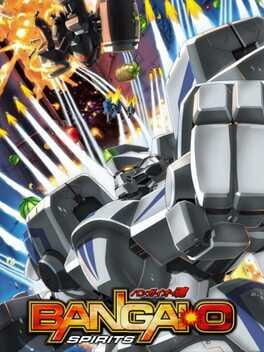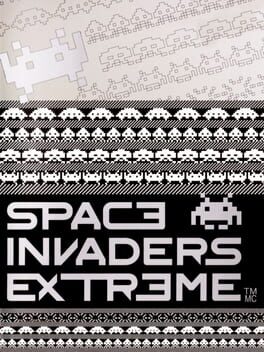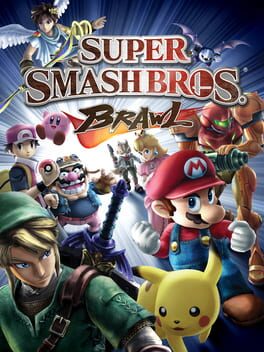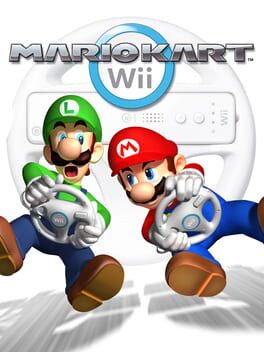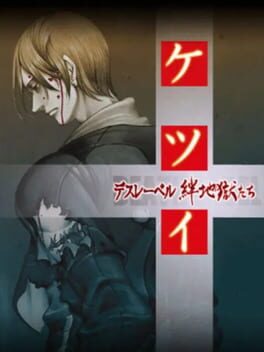Santieur52
BACKER
94 reviews liked by Santieur52
Alpha Protocol
2010
I don't necessarily know that I agree with this anymore, so I've removed the rating I originally gave it. Thank you for the recognition, though; this review in particular is why I've stuck around on this website.
Alpha Protocol is one of the worst Stealth games I've played in recent memory. I'll say that it's not the absolute bottom of the barrel when it comes to stealth games; you can tell that they tried their hardest with what they had. There are a ton of fun options to work around with, including gadgets like a sound emitter and tranquilizer darts for your pistol. But four fundamental pillars always set it back: one, bodies disappear. I'm not of the school of thought that you need to be able to drag bodies in a stealth game, but I've always thought that it's necessary to make sure they don't despawn. Part of the reason I love stealth games so much is that they're tense in a way few games are; small missteps will absolutely set you back. Taking the consequence away from having to take someone out feels cheap and cuts that tension in half. Two, it's overly reliant on checkpoints. Another staple of the stealth genre for me is the ability to quicksave. I know not every game has this, and some games are generally better without it. But when checkpoints are your only option, things get frustrating quickly. What ends up happening is that you get spotted, and because you either aren't well-equipped for combat or just don't want to deal with that noise, you try to reload a save. Only, your last checkpoint was 30 minutes ago, and you have to backtrack aaaaaaaall the way back for a minor misstep. In a game where the main goal is to shoot all of the bad guys, going back 30 minutes isn't too much of an issue. But when you can consistently set yourself back, it gets tiring to deal with. You can technically save your progress from a checkpoint in case you want to pull any of the punches this game asks you to make. But if you're wondering if that actually comes in handy while you're playing the game, its purpose is null. Three, the AI is erratic. Sometimes it will spot you on a dime or even through a wall, while other times, you can take three to four guys out in front of another guy, and he won't flinch. It's both unpredictable and infuriating to deal with. Finally, and most egregious of all, this game is NOT graceful when you get caught. Other games might make the transition from stealth to combat easy on their players, so it's not too much of a hassle to deal with. But in Alpha Protocol, I associated this lack of a transition with that of a jump scare. I might have screamed on multiple occasions; I didn't count. But I screamed a lot.
So then why on earth did I give this four stars?
Here's the thing: in The Walking Dead, the choice of Doug or Carly only affects your experience in a minor way. The game isn't asking you if you want the story to change significantly, but rather which character you want to hang around and how you want to alter one tiny scene later in the game. The way The Walking Dead presents its choices isn't through a sense of fascination, though, but through urgency. Whether or not you go with Doug or Carly, Doug or Carly will die. There's something to be said about how choice in video games is an illusion; the game might tell you telling Lee Everett to be more aggressive will make others more cautious in his presence, but without the game explicitly saying that that's the case, you'd be hard-pressed to notice a change in behavior. The Walking Dead, and those in its stead, are an inconsistent mix of show and tell. They're willing to show you some things, but the only thing they have to offer is lots of telling. In some instances, Alpha Protocol is guilty of the same thing. But what sets Alpha Protocol apart from its contemporaries with one thing: its pacing. There are plenty of Doug or Carly instances in this game, but instead of waiting half the game for that choice to have any meaningful impact, Alpha Protocol is blunt about your choices' outcomes. In a way, it has to be. The most significant factor in how you handle reactivity to player choice in video games comes down to setting. If your game is set within a slowly dying world, where the loss of life might as well turn the sun brown, it almost makes sense for your choices not to have consequences right away. In the case of Alpha Protocol's espionage setting, there isn't a single character in here that's in the right or wrong. If you want to make a case for some of the most despicable members of its cast, you can. Everything is varying shades of grey. If I had to wait half the game to find out that sparing the boss who played loud 80s hair-metal made someone angry, I'm no longer making a case for having saved that character. The illusion of choice is pushed to its absolute limit in Alpha Protocol, and I don't think I've seen another game take its approach in the ten-plus years since its release.
But none of that would be entertaining if the writing sucked. Thankfully, they pulled this one off with flying colors. The first thing that I have to point is that they reuse the same rape joke twice, and it isn't funny either time. But in contrast with the rest of the game, that's the exception. I laughed my ass off multiple times, and it was never at this game's expense. If you have the option to play a conversation straight-faced, you also have the option to do it shit-faced. I'm almost considering doing a playthrough where I'm an asshole to everyone because some of this dialog is genuinely that funny. But I don't know how easy that would be for me, considering how much I adore these characters. Mina, Scarlett, Steven, and Albatross are some of the best this game offers. But even the smaller side characters are entertaining and odd in their own ways. I'm sure that I missed out on one or two of them, which just gives me more incentive to revisit this when I get the sound of that stupid alarm going off out of my head. And I look forward to that day.
If Alpha Protocol had a less troubled development and wasn't rushed to market off the back of a bleeding budget, I think that this could have the potential to be in my top five of all time. But as it stands, it's still really fucking good, even if that hacking mini-game can go knit eggs. With all of the sixth to seventh-generation console games getting remade lately, I'm praying that Alpha Protocol gets the reevaluation it deserves.
Alpha Protocol is one of the worst Stealth games I've played in recent memory. I'll say that it's not the absolute bottom of the barrel when it comes to stealth games; you can tell that they tried their hardest with what they had. There are a ton of fun options to work around with, including gadgets like a sound emitter and tranquilizer darts for your pistol. But four fundamental pillars always set it back: one, bodies disappear. I'm not of the school of thought that you need to be able to drag bodies in a stealth game, but I've always thought that it's necessary to make sure they don't despawn. Part of the reason I love stealth games so much is that they're tense in a way few games are; small missteps will absolutely set you back. Taking the consequence away from having to take someone out feels cheap and cuts that tension in half. Two, it's overly reliant on checkpoints. Another staple of the stealth genre for me is the ability to quicksave. I know not every game has this, and some games are generally better without it. But when checkpoints are your only option, things get frustrating quickly. What ends up happening is that you get spotted, and because you either aren't well-equipped for combat or just don't want to deal with that noise, you try to reload a save. Only, your last checkpoint was 30 minutes ago, and you have to backtrack aaaaaaaall the way back for a minor misstep. In a game where the main goal is to shoot all of the bad guys, going back 30 minutes isn't too much of an issue. But when you can consistently set yourself back, it gets tiring to deal with. You can technically save your progress from a checkpoint in case you want to pull any of the punches this game asks you to make. But if you're wondering if that actually comes in handy while you're playing the game, its purpose is null. Three, the AI is erratic. Sometimes it will spot you on a dime or even through a wall, while other times, you can take three to four guys out in front of another guy, and he won't flinch. It's both unpredictable and infuriating to deal with. Finally, and most egregious of all, this game is NOT graceful when you get caught. Other games might make the transition from stealth to combat easy on their players, so it's not too much of a hassle to deal with. But in Alpha Protocol, I associated this lack of a transition with that of a jump scare. I might have screamed on multiple occasions; I didn't count. But I screamed a lot.
So then why on earth did I give this four stars?
Here's the thing: in The Walking Dead, the choice of Doug or Carly only affects your experience in a minor way. The game isn't asking you if you want the story to change significantly, but rather which character you want to hang around and how you want to alter one tiny scene later in the game. The way The Walking Dead presents its choices isn't through a sense of fascination, though, but through urgency. Whether or not you go with Doug or Carly, Doug or Carly will die. There's something to be said about how choice in video games is an illusion; the game might tell you telling Lee Everett to be more aggressive will make others more cautious in his presence, but without the game explicitly saying that that's the case, you'd be hard-pressed to notice a change in behavior. The Walking Dead, and those in its stead, are an inconsistent mix of show and tell. They're willing to show you some things, but the only thing they have to offer is lots of telling. In some instances, Alpha Protocol is guilty of the same thing. But what sets Alpha Protocol apart from its contemporaries with one thing: its pacing. There are plenty of Doug or Carly instances in this game, but instead of waiting half the game for that choice to have any meaningful impact, Alpha Protocol is blunt about your choices' outcomes. In a way, it has to be. The most significant factor in how you handle reactivity to player choice in video games comes down to setting. If your game is set within a slowly dying world, where the loss of life might as well turn the sun brown, it almost makes sense for your choices not to have consequences right away. In the case of Alpha Protocol's espionage setting, there isn't a single character in here that's in the right or wrong. If you want to make a case for some of the most despicable members of its cast, you can. Everything is varying shades of grey. If I had to wait half the game to find out that sparing the boss who played loud 80s hair-metal made someone angry, I'm no longer making a case for having saved that character. The illusion of choice is pushed to its absolute limit in Alpha Protocol, and I don't think I've seen another game take its approach in the ten-plus years since its release.
But none of that would be entertaining if the writing sucked. Thankfully, they pulled this one off with flying colors. The first thing that I have to point is that they reuse the same rape joke twice, and it isn't funny either time. But in contrast with the rest of the game, that's the exception. I laughed my ass off multiple times, and it was never at this game's expense. If you have the option to play a conversation straight-faced, you also have the option to do it shit-faced. I'm almost considering doing a playthrough where I'm an asshole to everyone because some of this dialog is genuinely that funny. But I don't know how easy that would be for me, considering how much I adore these characters. Mina, Scarlett, Steven, and Albatross are some of the best this game offers. But even the smaller side characters are entertaining and odd in their own ways. I'm sure that I missed out on one or two of them, which just gives me more incentive to revisit this when I get the sound of that stupid alarm going off out of my head. And I look forward to that day.
If Alpha Protocol had a less troubled development and wasn't rushed to market off the back of a bleeding budget, I think that this could have the potential to be in my top five of all time. But as it stands, it's still really fucking good, even if that hacking mini-game can go knit eggs. With all of the sixth to seventh-generation console games getting remade lately, I'm praying that Alpha Protocol gets the reevaluation it deserves.
This is a pleasant surprise, a game about a transgender person's experience about society, and how going out of your comfort zone can led to new experiences. While I can't say that it's a define experience for transgender people to open up, and the world to just be kind, at the least One Night, Hot Springs puts a positive spin to attempting to grow out of your comfort zone despite previous hardship.
Sadly, it's only real downfall is perhaps being too positive and short while trying to explain some rather complex feelings in a small amount of time. Despite this though, one night, hot springs still manages to juggle all it's characters well and give rather unique dialogue and experiences with each new choice you make. The fact that I wanted to see all the endings immediately, and experience more of the world is a testament to how good this game is, but it's sadly still too brief to satisfy me.
Sadly, it's only real downfall is perhaps being too positive and short while trying to explain some rather complex feelings in a small amount of time. Despite this though, one night, hot springs still manages to juggle all it's characters well and give rather unique dialogue and experiences with each new choice you make. The fact that I wanted to see all the endings immediately, and experience more of the world is a testament to how good this game is, but it's sadly still too brief to satisfy me.
The Finals
2023
Wonder es el peor Mario de la serie principal desde, no se... Hago memoria y es que ni World, ni los Galaxy, ni Land me parecen tan malos. Los New, que ya eran una versión descafeinada de Mario 3, aun guardaban algo más de interés. El movimiento de Mario se había limado mucho pero seguía manteniendo un mínimo de peso, acelerar guardaba su inercia. En Wonder tenemos el movimiento de Mario más digital de toda la saga. En mi partida escogí a Luigi porque me daba la opción y, no se si habrá alguna diferencia con Mario, pero este no es Luigi. En Mario 2 (J), donde se introdujo por primera vez a Luigi con movimiento propio, el personaje patinaba, aceleraba más rápido y tardaba más en frenar, saltaba más alto y era más incontrolable. Luigi aquí no tiene personalidad. El movimiento de Wonder me recuerda a fangames como Super Mario Flashback. Con cosas así se puede perdonar que el que lo hace no sepa que Mario es su movimiento, porque es un proyecto fan, no tiene las mismas exigencias, etc. Aquí lo preocupante es que son de Nintendo quienes han cometido este ataque a los principios básicos del gordo italiano.
El diseño de niveles no mejora el movimiento. A caba bandera de cierre solo me venía a la cabeza: "no me creo que eso haya sido el nivel". Al poco rato de terminar el juego ya había olvidado la mayoría de ellos. Que cosa más básica, plana, sin fricción. Líneas rectas sin apenas obstáculos o enemigos. Ni siquiera se atreven a combinar más de una idea a la vez, algo básico que solían hacer estos juegos. Algunos bill balas en una sección de autoscroll, un lakitu lanzándote pinchones en una sección de plataformas móviles. Algo, lo que sea. Antes de empezar con Wonder me puse el New de Wii, porque nunca lo había jugado y para recordar el tacto de Mario. Nunca pensé que diría algo así, pero pasar de los niveles de New a estos es un abismo.
Y con los power-ups igual. En el New, uno de los nuevos power-ups que te introducen es el traje de pingüino. Tan ridículo como se ve, hace un uso interesante del movimiento de Mario, que al agacharse en carrera se desliza sobre la panza. La orografía de los niveles en los que te lo daban estaba llena de pendientes, subidas y bajadas, hielo y plataformas. Ninguna genialidad pero el mínimo para hacer disfrutable atravesarlos deslizándote. El primer power-up de Wonder es el elefante. ¿Qué aporta exactamente? ¿Se siente más pesado de controlar? ¿Es más lento o contundente? ¿Puedes, yo que se, balancearte con la trompa? Nada. La ausencia de personalidad del elefante es la misma que la de Luigi o Mario sin transformar. Ah, pero puedes dar trompazos. Enhorabuena, le has añadido un ataque cuerpo a cuerpo a Mario. Menuda revolución.
Lo de las habilidades secundarias ni lo voy a comentar, parecen sacadas de Celeste.
El principal atractivo de Wonder, la wonder-flor, que da un giro a los niveles y les aporta el toque de "locura", decir que es anecdótico sería tenerle demasiada consideración. Si te paras a analizar cada sección alternativa, ¿ofrecen algo más allá de la primera impresión? ¿Repetirías un nivel únicamente para volver a jugar esa sección en la que las tuberías suben y bajan o en la que cambia la perspectiva u otra tontería de usar y tirar? Cualquier nivel de Pizza Tower, el que sea, deja en vergüenza la wonder-flor. El ansia y velocidad con que te incitan a jugar, el ritmo de lanzarte ideas sin mayor introducción, ahora estás hecho de queso, ahora eres una armadura, ahora eres una caja de pizza y vuelas y enseguida entiendes el nuevo movimiento y navegas el nivel de otra forma y de pronto llegas al final y la música cambia y acelera y tienes que correr de vuelta a toda hostia y retrocedes a trompicones y Gustavo te mete prisa y entras en un caos a máxima velocidad... Se siente hasta injusta la comparación con Wonder.
Mario Wonder es una desgracia de juego. Es patético como Mario y una falta de saber hacer y visión preocupante. No es que esperase mucho de la Nintendo actual, pero esto me parece un nuevo nivel de bajeza. En un Mario principal, que es peor. Si fuera un Yoshi, que nadie espera nada de él pues todavía, pero en la saga insignia de Nintendo es triste y, sinceramente, me ha quitado las ganas de probar ningún juego que saque esta compañía en el futuro.
El diseño de niveles no mejora el movimiento. A caba bandera de cierre solo me venía a la cabeza: "no me creo que eso haya sido el nivel". Al poco rato de terminar el juego ya había olvidado la mayoría de ellos. Que cosa más básica, plana, sin fricción. Líneas rectas sin apenas obstáculos o enemigos. Ni siquiera se atreven a combinar más de una idea a la vez, algo básico que solían hacer estos juegos. Algunos bill balas en una sección de autoscroll, un lakitu lanzándote pinchones en una sección de plataformas móviles. Algo, lo que sea. Antes de empezar con Wonder me puse el New de Wii, porque nunca lo había jugado y para recordar el tacto de Mario. Nunca pensé que diría algo así, pero pasar de los niveles de New a estos es un abismo.
Y con los power-ups igual. En el New, uno de los nuevos power-ups que te introducen es el traje de pingüino. Tan ridículo como se ve, hace un uso interesante del movimiento de Mario, que al agacharse en carrera se desliza sobre la panza. La orografía de los niveles en los que te lo daban estaba llena de pendientes, subidas y bajadas, hielo y plataformas. Ninguna genialidad pero el mínimo para hacer disfrutable atravesarlos deslizándote. El primer power-up de Wonder es el elefante. ¿Qué aporta exactamente? ¿Se siente más pesado de controlar? ¿Es más lento o contundente? ¿Puedes, yo que se, balancearte con la trompa? Nada. La ausencia de personalidad del elefante es la misma que la de Luigi o Mario sin transformar. Ah, pero puedes dar trompazos. Enhorabuena, le has añadido un ataque cuerpo a cuerpo a Mario. Menuda revolución.
Lo de las habilidades secundarias ni lo voy a comentar, parecen sacadas de Celeste.
El principal atractivo de Wonder, la wonder-flor, que da un giro a los niveles y les aporta el toque de "locura", decir que es anecdótico sería tenerle demasiada consideración. Si te paras a analizar cada sección alternativa, ¿ofrecen algo más allá de la primera impresión? ¿Repetirías un nivel únicamente para volver a jugar esa sección en la que las tuberías suben y bajan o en la que cambia la perspectiva u otra tontería de usar y tirar? Cualquier nivel de Pizza Tower, el que sea, deja en vergüenza la wonder-flor. El ansia y velocidad con que te incitan a jugar, el ritmo de lanzarte ideas sin mayor introducción, ahora estás hecho de queso, ahora eres una armadura, ahora eres una caja de pizza y vuelas y enseguida entiendes el nuevo movimiento y navegas el nivel de otra forma y de pronto llegas al final y la música cambia y acelera y tienes que correr de vuelta a toda hostia y retrocedes a trompicones y Gustavo te mete prisa y entras en un caos a máxima velocidad... Se siente hasta injusta la comparación con Wonder.
Mario Wonder es una desgracia de juego. Es patético como Mario y una falta de saber hacer y visión preocupante. No es que esperase mucho de la Nintendo actual, pero esto me parece un nuevo nivel de bajeza. En un Mario principal, que es peor. Si fuera un Yoshi, que nadie espera nada de él pues todavía, pero en la saga insignia de Nintendo es triste y, sinceramente, me ha quitado las ganas de probar ningún juego que saque esta compañía en el futuro.
Tunic
2022
Even though its references are obvious at first glance and more obvious once you start playing, Tunic doesn’t feel at all like any of them. And contrary to what you might think, that’s a bad thing. Let me explain.
Yes, it plays like a Zelda, and Zelda 1 has been referenced many, many times by other texts for obvious reasons like the lack of gimmicky dungeons, the hidden secrets, the apparent simplicity of the gameplay… it even tries to replicate the experience of playing with a manual and taking notes in order to progress and have a better understanding of the whole thing. But it fails so miserably. The world is over-designed, abusing connections between locations, teleports, save points… The sense of discovery and adventure vanishes when there’s hardly any sense danger except for bosses and occasional fights and, in case of trouble, you will respawn in the latest save point activated (which by the way you can use even when surrounded by enemies) so there’s virtually no loss of progress.
Tunic also never gets close to the feeling of having to figure the hell out of your path in order to your destination. There’s no hidden doors or passages that are necessary to progress through any of the dungeons or important locations, all the layouts are straight forward and it ends up feeling more like a modern Zelda just without puzzles to solve. Instead, there’s always locked doors with a handle next to it and at most you’ll have to fight a bunch of minions or reach it from a different place because the path is locked. What’s most worrying for me, though, is the fact that even if the dungeons themselves don’t have puzzles or gimmicks in the traditional sense (except for one that I can recall), the world itself is built around those gimmicks in a really gamey, artificial manner, hiding rewards and blocking your progress behind unreachable places if you don’t have the necessary items or power ups like the hook or the dash.
You'll also see people talk about Dark souls but honestly at this point it seems like a joke to me that people think of the game when something has stamina, bosses and bonfire-like save points. FEZ has been said to be closer to what Tunic wants to dobut this is not as mystic, magical, obtuse, imaginative, with its craziest puzzles and challenges being better integrated into the world, less gamey. For instance, both the famous Golden Path and the mechanism to activate the mysterious monoliths and doors spread throughout the world (by following a sequence of d-pad presses that have no other utility, quite underwhelming) are revealed in the manual at some point. Which brings me to the next point: why is it there in the first place? What sense does it make in the context of the game and its world? What’s fun about having pages giving you hints or sometimes really clear explanations about where you are, where to go, how its systems work, which buttons do what, how to perform certain actions or where to find things? Wasn’t the point to explore a mystical world with lots of secrets to find and emulate the old experience of exchanging information with other people, taking notes, having to figure out things… ? And why is it both in our language and the game’s language, emulating a lost manuscript that you have to gather by exploring and overcoming challenges, in a way that doesn’t feel natural at all? The point of having a manual is being able to understand it, the point of having old manuscripts is not being able to understand them, but this in-between with words written in both languages, plus the bland foreshadowing, button mappings and game system explanations, handy little hints every once in a while etc just doesn't make any sense.
But there’s great stuff like The Quarry. Everything about that zone, from its perspective-shifting presentation (very cinematic) showing the giant door you have to reach. The place is full of enemies who attack you from different ranges and heights and show different behaviours when you approach them. They all gather around corruption, some weird purple-ish liquid that’s either just there or emanating from ancient monoliths, and that corruption shrinks your health bar (yes, your health bar, not your hp) making you play safer, experiment with the different items and power ups, manage the distances and so-on. Everything’s cool except for the existence of certain item that grants invulnerability to corruption unless you touch it. It was too good to be true.
Yes, it plays like a Zelda, and Zelda 1 has been referenced many, many times by other texts for obvious reasons like the lack of gimmicky dungeons, the hidden secrets, the apparent simplicity of the gameplay… it even tries to replicate the experience of playing with a manual and taking notes in order to progress and have a better understanding of the whole thing. But it fails so miserably. The world is over-designed, abusing connections between locations, teleports, save points… The sense of discovery and adventure vanishes when there’s hardly any sense danger except for bosses and occasional fights and, in case of trouble, you will respawn in the latest save point activated (which by the way you can use even when surrounded by enemies) so there’s virtually no loss of progress.
Tunic also never gets close to the feeling of having to figure the hell out of your path in order to your destination. There’s no hidden doors or passages that are necessary to progress through any of the dungeons or important locations, all the layouts are straight forward and it ends up feeling more like a modern Zelda just without puzzles to solve. Instead, there’s always locked doors with a handle next to it and at most you’ll have to fight a bunch of minions or reach it from a different place because the path is locked. What’s most worrying for me, though, is the fact that even if the dungeons themselves don’t have puzzles or gimmicks in the traditional sense (except for one that I can recall), the world itself is built around those gimmicks in a really gamey, artificial manner, hiding rewards and blocking your progress behind unreachable places if you don’t have the necessary items or power ups like the hook or the dash.
You'll also see people talk about Dark souls but honestly at this point it seems like a joke to me that people think of the game when something has stamina, bosses and bonfire-like save points. FEZ has been said to be closer to what Tunic wants to dobut this is not as mystic, magical, obtuse, imaginative, with its craziest puzzles and challenges being better integrated into the world, less gamey. For instance, both the famous Golden Path and the mechanism to activate the mysterious monoliths and doors spread throughout the world (by following a sequence of d-pad presses that have no other utility, quite underwhelming) are revealed in the manual at some point. Which brings me to the next point: why is it there in the first place? What sense does it make in the context of the game and its world? What’s fun about having pages giving you hints or sometimes really clear explanations about where you are, where to go, how its systems work, which buttons do what, how to perform certain actions or where to find things? Wasn’t the point to explore a mystical world with lots of secrets to find and emulate the old experience of exchanging information with other people, taking notes, having to figure out things… ? And why is it both in our language and the game’s language, emulating a lost manuscript that you have to gather by exploring and overcoming challenges, in a way that doesn’t feel natural at all? The point of having a manual is being able to understand it, the point of having old manuscripts is not being able to understand them, but this in-between with words written in both languages, plus the bland foreshadowing, button mappings and game system explanations, handy little hints every once in a while etc just doesn't make any sense.
But there’s great stuff like The Quarry. Everything about that zone, from its perspective-shifting presentation (very cinematic) showing the giant door you have to reach. The place is full of enemies who attack you from different ranges and heights and show different behaviours when you approach them. They all gather around corruption, some weird purple-ish liquid that’s either just there or emanating from ancient monoliths, and that corruption shrinks your health bar (yes, your health bar, not your hp) making you play safer, experiment with the different items and power ups, manage the distances and so-on. Everything’s cool except for the existence of certain item that grants invulnerability to corruption unless you touch it. It was too good to be true.
Paradise Killer
2020
1. Pones mimo en construir un mundo.
2. Añades coleccionables, curiosidades y secretos en él.
3. Das libertad para explorar, sin secuencia a la que ceñirse.
4. Y, finalmente, conviertes al jugador en detective.
Es tan simple que sorprende. A mí me sorprendió encontrarme tan absorbido y disfrutando a tales niveles de algo tan elemental a nivel conceptual. ¿Cómo no se ha hecho esto antes mil veces? Con tanta gente hablando de "lore", enganchada a la historia de un mundo revelada a través de información obtenida mediante la observación de un lugar. Y con el éxito conseguido históricamente por tantos videojuegos de (libre) exploración, ejemplo reciente de Breath of the Wild inclusive, entre muchos otros. Cómo puede ser, me sigo preguntando, que algo como Paradise Killer no apareciese hasta 2020.
Era eso, que aquello que buscar en el mundo fuese la verdad. No power-ups, ni tesoros, ni atajos, ni nuevos lugares a los que acceder. Ni siquiera pequeñas historietas, aunque todo esto funcione y tenga su propósito y ayude. Tan solo eso, la verdad. Una verdad ocultada, secreta, para que el mundo esconda un misterio que desentrañar. En este presunto paraíso, la isla 24, se ha cometido un crimen, y nosotros somos los encargados de resolverlo. He aquí unos presuntos hechos, un presunto culpable. Pero también todos estos sospechosos, y esta isla que es una escena del crimen gigante. ¿Quién sabe más de lo que dice? ¿Quién miente? ¿Quién conspira? ¿Es el relato oficial lo bastante sólido o algo huele a podrido en Dinamarca?
Así pues, a explorar. A buscar pistas, a hablar con la peña, a desmantelar coartadas, a encontrar contradicciones, a descubrir posibles conspiraciones y a atar cabos para, al final, demostrar y ajusticiar en la corte. Con todas las sorpresas y bolas curvas que nos deparará el camino.
Mucho hemos tardado.
2. Añades coleccionables, curiosidades y secretos en él.
3. Das libertad para explorar, sin secuencia a la que ceñirse.
4. Y, finalmente, conviertes al jugador en detective.
Es tan simple que sorprende. A mí me sorprendió encontrarme tan absorbido y disfrutando a tales niveles de algo tan elemental a nivel conceptual. ¿Cómo no se ha hecho esto antes mil veces? Con tanta gente hablando de "lore", enganchada a la historia de un mundo revelada a través de información obtenida mediante la observación de un lugar. Y con el éxito conseguido históricamente por tantos videojuegos de (libre) exploración, ejemplo reciente de Breath of the Wild inclusive, entre muchos otros. Cómo puede ser, me sigo preguntando, que algo como Paradise Killer no apareciese hasta 2020.
Era eso, que aquello que buscar en el mundo fuese la verdad. No power-ups, ni tesoros, ni atajos, ni nuevos lugares a los que acceder. Ni siquiera pequeñas historietas, aunque todo esto funcione y tenga su propósito y ayude. Tan solo eso, la verdad. Una verdad ocultada, secreta, para que el mundo esconda un misterio que desentrañar. En este presunto paraíso, la isla 24, se ha cometido un crimen, y nosotros somos los encargados de resolverlo. He aquí unos presuntos hechos, un presunto culpable. Pero también todos estos sospechosos, y esta isla que es una escena del crimen gigante. ¿Quién sabe más de lo que dice? ¿Quién miente? ¿Quién conspira? ¿Es el relato oficial lo bastante sólido o algo huele a podrido en Dinamarca?
Así pues, a explorar. A buscar pistas, a hablar con la peña, a desmantelar coartadas, a encontrar contradicciones, a descubrir posibles conspiraciones y a atar cabos para, al final, demostrar y ajusticiar en la corte. Con todas las sorpresas y bolas curvas que nos deparará el camino.
Mucho hemos tardado.
Review
I gave it a real shot, for 8 hours!
You can read my notes and thoughts here : https://twitter.com/han_tani2/status/1735187901296836666
Or read an essay in which I discuss TotK https://melodicambient.substack.com/p/why-ocarina-of-time-cant-be-recreated
The short version is: the game has its nice charming moments, I actually like the idea of janky physics dungeons and riding around on stuff. NPC designs are nice and some of the side quests looked interesting. But I hattteee the crafting stuff, it kind of ends up padding almost everything in the game out. There's also so much distraction, it feels like YouTube recommendations or TikTok...
Shitpost review
Zelda but if Miyamoto wasn't inspired by wandering the countryside as a kid but opening up Genshin enough times to get the 30 day login bonus
I gave it a real shot, for 8 hours!
You can read my notes and thoughts here : https://twitter.com/han_tani2/status/1735187901296836666
Or read an essay in which I discuss TotK https://melodicambient.substack.com/p/why-ocarina-of-time-cant-be-recreated
The short version is: the game has its nice charming moments, I actually like the idea of janky physics dungeons and riding around on stuff. NPC designs are nice and some of the side quests looked interesting. But I hattteee the crafting stuff, it kind of ends up padding almost everything in the game out. There's also so much distraction, it feels like YouTube recommendations or TikTok...
Shitpost review
Zelda but if Miyamoto wasn't inspired by wandering the countryside as a kid but opening up Genshin enough times to get the 30 day login bonus
Bad Piggies
2012
Devil May Cry 2
2003
23 lists liked by Santieur52
by TheMatee |
26 Games
by fancyynancyy |
98 Games
by MendelPalace |
102 Games
by Drakkar |
8 Games
by Drakkar |
8 Games
by Drakkar |
11 Games
